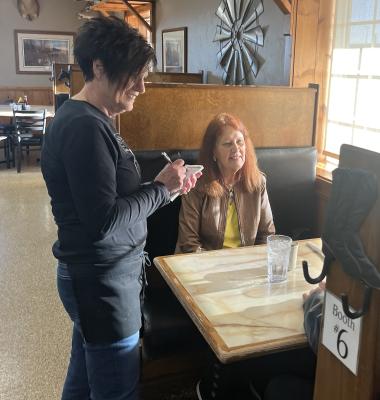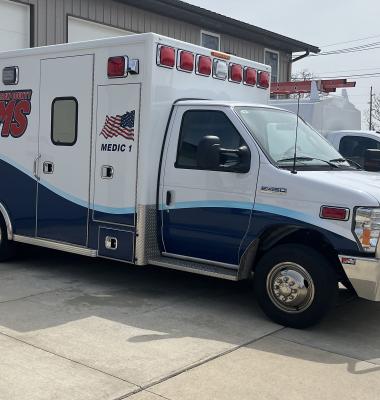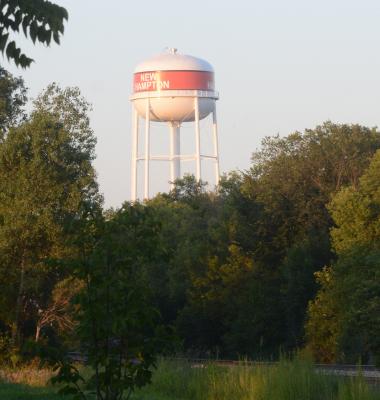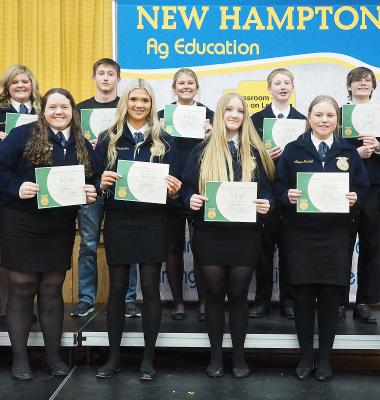Student, teacher share a life-changing journey

Caleb Lines thought long and hard as he pondered the question.Did taking part in a unique program called “Normandy: Sacrifice for Freedom Albert H. Small Student and Teacher Institute” this summer change his life?Seconds passed by as the Nashua-Plainfield High School junior-to-be tried to find the right words.“It’s hard to explain,” he said, “but in the end, it did. Maybe I don’t get the sacrifices those World War II soldiers made because you can’t unless you’ve lived through them. But I understand them.”As he talked, his history teacher, Suzy Turner, couldn’t help but smile. With one answer, her student had answered another question: Was all that work worth it?Late last year, Turner and Lines learned they had been one of 15 student-teacher teams to be selected for the program in which each pair researches World War II history in general and a “silent hero” in particular.The 15 duos spend a week in Washington finishing up their research, see the sights and take part in evening events.And then Small flies them to France, where in the Normandy American Cemetery, located on one of the bluffs overlooking D-Day’s Omaha Beach, they deliver “eulogies” to their silent heroes.Just applying for the program took some work. There were forms to fill out and essays to write, but that was nothing compared to what was in store for them once they were selected.They both completed weekly assignments, read five books and countless articles, watched documentaries and films like “Saving Private Ryan” and researched their “silent hero” by using primary sources like war records, draft cards and interviews with family members.On June 16, Lines flew to Washington to meet up with Turner, who had taken several Nashua-Plainfield students to the National History Day Contest.Their main focus was to find as much information on Ervin A. Westendorf, a 32-year-old Waverly man who died in France on July 19, 1944.Finding information on him was difficult, in part, because Westendorf never married.But they were fortunate enough to meet a Plainfield woman, whose father had employed Westendorf.“She came up to me and said, ‘That’s ‘Dutch,’ he worked for my dad,’” Turner said. “When you don’t have the next of kin or children to find, it makes it tougher to personalize the eulogy.”Still, the two learned so much, not just about Westendorf but also about their country during World War II.“It’s hard to imagine,” Lines said, “but everything was rationed. And everyone had something to do with the war effort. I mean everyone.”AFTER A WEEK in Washington, the students and teachers boarded a plane for Paris and took a 3 1/2-hour bus ride to Normandy.Students had a chance to ride in a LST, which carried American troops to the beach, and they also had a chance to see German defenses that laid down a murderous field of fire on June 6, 1944.They also visited other cemeteries, including those for French civilians and British, Canadian and German troops.“No one really took care of the German cemetery for 10 years after the war,” Turner said, “and now, there are German [nationals] who come to Normandy to tend to the graves.”But the highlight of the trip was the chance to deliver that eulogy to Ervin A. Westendorf, who was part of an anti-aircraft battery, and to hear the other eulogies developed by students and teachers from across the country.“It was really moving,” Lines said, “and I can honestly say that I’ll remember for the rest of my life.”One student had recently lost her 19-year-old brother in an accident, and her “silent hero” also happened to be 19 the day he died in France so long ago.“There wasn’t a dry eye in the cemetery,” Turner said. “She connected the two, and it was just beautiful and heartbreaking at the same time.”THEY ARRIVED BACK in the United States on July 1, just in time for the Fourth of July weekend.Life picked up where it left off. Turner was reunited with her husband and hit the golf links for the first time in weeks. Lines began putting the finishing touches on his upcoming county fair projects and preparing for his upcoming cross country and basketball seasons.Yet, a part of them remained “across the pond.”Not a day has gone by in which Lines hasn’t heard from at least several students from the Small Student and Teacher Institute, and Turner said it was exciting to meet teachers from throughout the country.Nashua-Plainfield was easily the smallest school represented on the trip.“Some of the kids had never seen farms before,” Lines said with a laugh, “so that was a little interesting.”“We had to tell them the cows weren’t going to charge them,” Turner said. “There was no bull there, so we were just fine.”They turned serious for a moment, for their odyssey that began in December when they found out they were selected and ended in July 1 when they arrived home in Iowa, created a special bond between teacher and pupil.“I’m always going to be grateful that I got to do this,” Lines said. “To have a teacher willing to do all this work is something I’ll never forget.”














